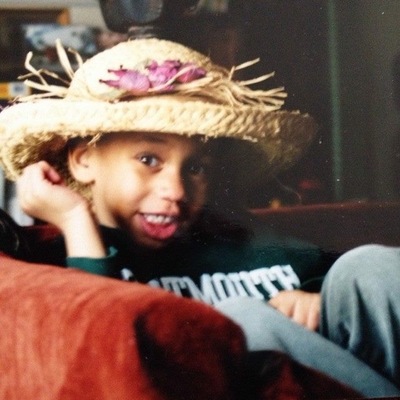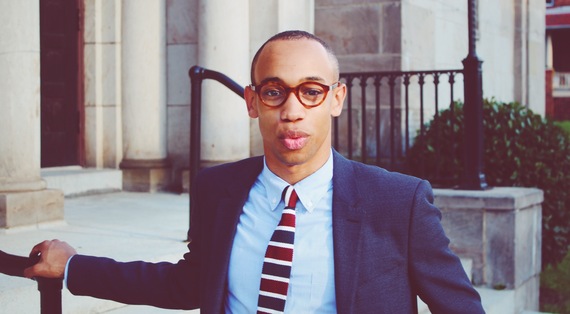
One of the first lessons I learned when I started blogging a few years back was that it’s difficult to tell another’s story without first knowing your own. Only in the past three years have I been able to unpack and reclaim my story, for others had written much of it for me — largely against my will. Coming of age as a Black gay boy in Tennessee was a harrowing experience. From an early age I knew that my black skin made others uncomfortable. So I learned to hide it. I hid my skin color behind my ‘whiteness’ — my clothes, my cadence, my private education, and my lighter “caramel-like”…
One of the first lessons I learned when I started blogging a few years back was that it’s difficult to tell another’s story without first knowing your own. Only in the past three years have I been able to unpack and reclaim my story, for others had written much of it for me — largely against my will.
Coming of age as a Black gay boy in Tennessee was a harrowing experience. From an early age I knew that my black skin made others uncomfortable. So I learned to hide it. I hid my skin color behind my ‘whiteness’ — my clothes, my cadence, my private education, and my lighter “caramel-like” skin. I learned to blend in, eventually taking pride in my ability to do so. Blending in by being ‘respectable’ was necessary not only for survival, but for any chance to thrive.
Looking back on old photographs reminds me of how expressive I once was — how free and open, unapologetically myself. I had to learn, though, to walk without a swing in my hips, to mind my wrists, to “tone it down.” Between school, the Black church, and the suspecting eyes of my parents, I found little time or autonomy to simply be myself. The name of the game was survival, and respectability was how it was played.
 The dark side of respectability is the silence, invisibility, and self-deception it requires. In hindsight, my coming out at age fifteen was the first time I attempted to reclaim my narrative, my life having reached the point that it was a decision of come out or be outed. So I came out — a decision made not from a position of empowerment, but one of helplessness.
The dark side of respectability is the silence, invisibility, and self-deception it requires. In hindsight, my coming out at age fifteen was the first time I attempted to reclaim my narrative, my life having reached the point that it was a decision of come out or be outed. So I came out — a decision made not from a position of empowerment, but one of helplessness.
Admitting I was gay would not bring congratulations or words of encouragement. My coming out wouldn’t make me ‘remarkable’ or ‘inspirational,’ it would not make someone else ‘proud.’ My coming out wouldn’t garner hundreds of likes on social media and the admiration of the press. No, my coming out simply made me a Black and gay — a “n*ggerf*ggot,” as a friend once called me.
In being Black, my presence was uncomfortable. But in being openly gay and Black, my presence was offensive. I leaned on respectability more than ever. As a camper and counselor at an all-male camp in North Carolina, I learned the cost of being silent and agreeable.
At camp, where Southern, white masculinity dominated, I tried to blend. Blending became harder as my life at home became more distant from the persona I projected. Surrounded by the sons of the Southern elite, I very well could not be the son of my unemployed father. To them, my respectability was my best trait. I became the exception — “different from the others,” “one of the guys,” and “not really Black.” I wore these tags as badges of honor, for it spoke to my ability to adapt. I came to see their world as my own, under the banners of “pride not prejudice,” and “this is the way I was raised.”
Their language shaped my reality and my identity in it. Ironically, these experiences at camp and back home made me confident, for I had learned how to exist, and thrive, in this environment. This followed through to my college decisions, when I went with what felt familiar — for I knew how to act, how to walk, how to talk, how to survive with confidence in such an environment.
When I arrived at Dartmouth, I immediately began to remold myself to seamlessly harmonize with the student body. For the first time in my life, though, I failed. My rejection from the Greek system meant I could blend no further, however much I tried. For the first time, I had to consider who I was, apart from the system and my friends in it. For the first time, it was necessary for me to confront my own reality, my own identity, and my own sense of self. But after thirteen years, I believed my own self-deceptions, my own sense of exceptionalism.
My world, and sense of place in it, was constructed around this frame — their frame. I knew little of myself outside of this construction, except for the two simple facts: that I was gay and Black. Life was now asking something new of me; no longer needing to ‘survive,’ I was faced with the new challenge of simply living with myself. The name of the game was now living, and I did not know how it was played.
Overwhelmed, angry, and ashamed, I cracked. I cracked silently, down to my very core. Three years ago, I did not know who I was. What I did know, however, was that I was committed to finding out. Over these past three years, I have found, and am still finding, my authentic self.
Maya Angelou once wrote, “Do the best you can until you know better. Then when you know better, do better.”
I did the best I could. I can’t continue to punish myself for my past. Yet for the first time in my life, I feel in control of my narrative, in control of my life. In many ways, I have always had this control; I simply surrendered it time and time again. I have succeeded in reclaiming my story and assuming responsibility for the writing of it. That is my proudest accomplishment of all.
— This feed and its contents are the property of The Huffington Post, and use is subject to our terms. It may be used for personal consumption, but may not be distributed on a website.
Taken from –


























